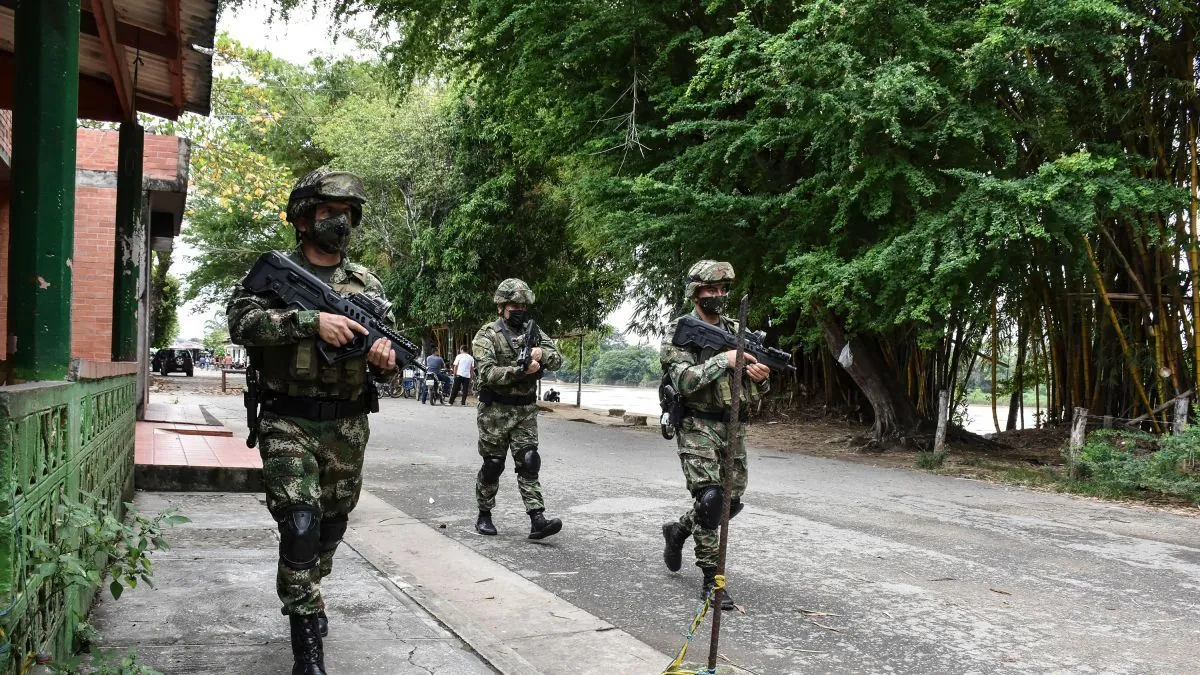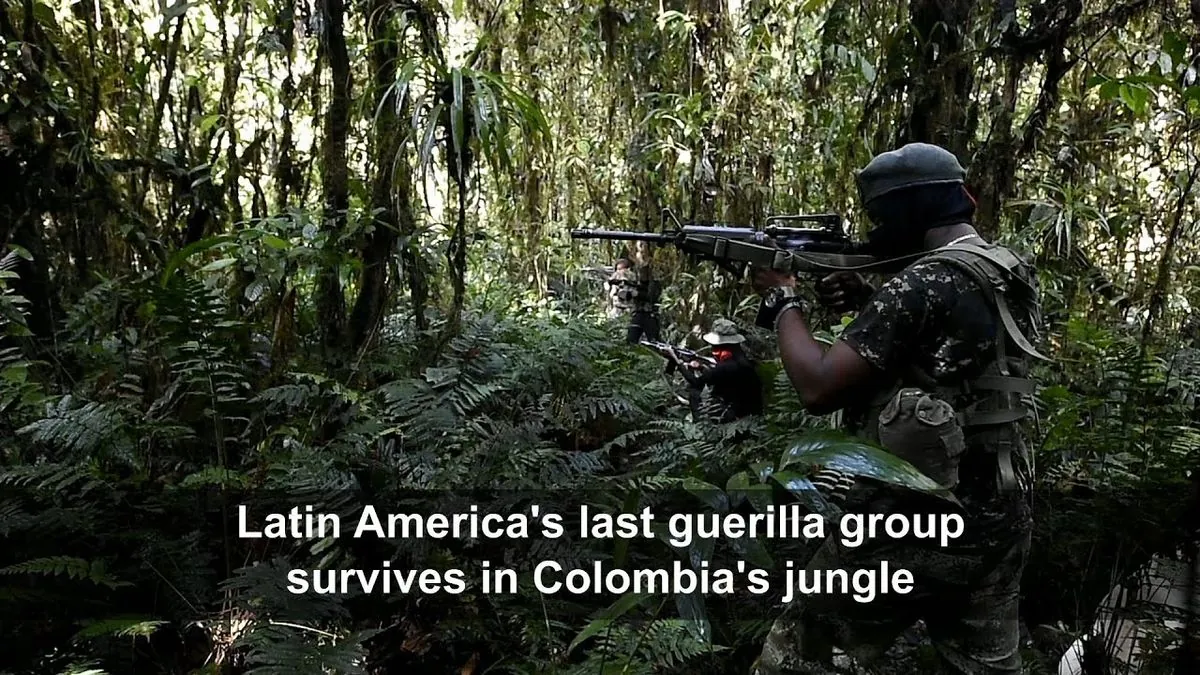Colombia Halts ELN Peace Talks After Deadly Attack in Arauca
Colombia suspends peace negotiations with ELN rebels following an attack killing two soldiers. This setback challenges President Petro's "total peace" initiative, aimed at ending decades of conflict.

In a significant setback to Colombia's peace efforts, the government has suspended negotiations with the National Liberation Army (ELN), the country's largest active guerrilla group. This decision comes in the wake of a violent incident in Arauca province, bordering Venezuela, where two soldiers lost their lives and over two dozen were injured.
The attack, which occurred on September 17, 2024, has dealt a severe blow to President Gustavo Petro's ambitious "total peace" policy. This initiative, a cornerstone of Petro's administration, aims to bring an end to Colombia's protracted internal conflict, which has spanned six decades.
Petro, Colombia's first leftist president and a former member of the M-19 guerrilla group, has been pursuing a comprehensive approach to peace since his election in 2022. The ELN, founded in 1964 and estimated to have 2,500-3,000 active combatants, has been a key target of these efforts.
The government's peace delegation stated on social media: "Today the peace process is on hold. Its viability is severely diminished and its continuation can only go ahead with an unequivocal demonstration of peace by the ELN."

This suspension comes after six rounds of talks held in Mexico, Cuba, and Venezuela since late 2022. The ELN, known for kidnappings, extortion, and attacks on oil infrastructure, has a strong presence in Arauca, a region rich in oil reserves and a hotspot for guerrilla activity.
The group's Marxist-Leninist ideology and opposition to natural resource privatization have made negotiations challenging. Its decentralized structure, compared to other guerrilla groups, adds another layer of complexity to the peace process.
Considered a terrorist organization by Colombia, the United States, and the European Union, the ELN has been involved in multiple failed peace talks over the years. This latest setback underscores the difficulties in achieving lasting peace in a country where armed groups have long exploited border regions and natural resources.
As Colombia grapples with this new obstacle, the future of the "total peace" policy remains uncertain. The government's demand for an "unequivocal demonstration of peace" from the ELN sets a high bar for the resumption of talks, leaving the path to resolution unclear in the ongoing struggle to end Colombia's long-standing internal conflict.


































